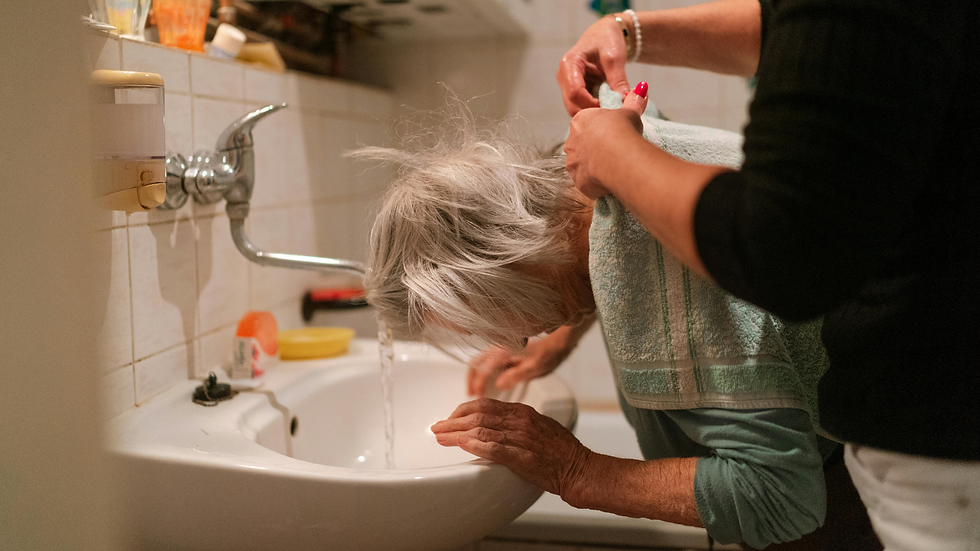Cold Weather Safety Tips for Seniors and Caregivers
- CAB

- Dec 28, 2022
- 2 min read
Updated: Jun 18, 2024
While for some the extreme weather conditions mean canceled travel plans and spending the holidays apart from family, winter storms cam have detrimental costs for others.
Seniors can be especially vulnerable to the dangers of cold weather, as changes in both physical and mental faculties can add significantly to their risk. However, paid caregivers are also a group that is at higher risk, as hunkering down and bundling up is often not a privilege they can because they have to take care of their senior they care for. Here are a few cold-weather tips to help ensure safety for seniors and caregivers.
Cold Weather Tips for Seniors and Caregivers

Plan Ahead
While we are in the middle of extreme weather conditions, preventative steps can still be taken to lower the risk that seniors face in their homes. Good planning should take power outages into account that can leave seniors stranded without heat or food in their homes, as well as expose caregivers to adverse working conditions. Preventative steps can include ensuring that a backup generator is on hand, as well as non-perishable food.
Home Safety
While home safety assessments are common practice for care agencies, it is important to perform a cold-weather home safety assessment. In winter months, otherwise harmless home elements such as outdoor steps can become slick and icy, a perfect recipe for falls and hospitalizations. Caregivers, who frequent the homes of seniors where driveways and walkways are less likely to be cleared, are also at risk, especially when actively assisting a seniors in crossing these obstacles.
It is also advised to wear shoes with non-slip soles, and to winter-proof canes and walkers. Once inside, it is important to switch to indoor shoes as any residual ice or snow can cause falls on indoor surfaces.
Dress for Warmth
Seniors often feel environmental cold less acutely, and have a reduced ability to regulate body temperature. Paired with the fact that they are often resistant to turning on the heat due to costs, seniors can be at risk of hypothermia during the winter months.
It is important to dress for warmth even within the home, while ensuring that you do not restrict motion.
Winter Driving
Winter driving can be perilous as icy roads and tricky visibility take their toll. Seniors may experience a reduction in reflexes when driving even in the best conditions, and tend to drive less as they age. This combination can cause trouble when driving in winter months.
It is beneficial to have a driving-safety talk with your clients when the snow starts to fall, and encourage them to have a car-tune up that could mitigate the possibility of hazardous situations.
How CAB Prepares for Cold Weather Disasters
At Care Around the Block, in the case of severe or bad weather we make every reasonable effort to deliver and, if necessary, prioritize client services during the inclement weather without putting the health and safety of staff or clients at risk.
With awareness and preparation, we can help keep seniors and caregivers safe and sound in this winter. We can replace the perils of cold weather with the joys of winter – a cozy night curled up by the fireplace with a warm drink in hand.




Comments